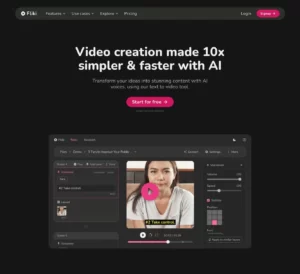Brain2Music: Reconstructing Music from Human Brain Activity
vsFliki.ai-Text to Video and Text to Speech
Listing Type |
AITools |
AITools |
Price |
$21.00 | |
Reviews | ||
Category |
AI Video and Shorts Music & Audio & Voice |
Music & Audio & Voice |
Choose Ad Type | ||
AI Tool or Product Features |
Text to Video: Fliki excels in converting text into engaging videos. Users can input text content, and the platform automatically transforms it into video format
Text to Speech: Fliki provides AI-powered voices for text-to-speech conversions, creating natural-sounding voiceovers
User-Friendly: Fliki's interface is designed for ease of use, making it suitable for beginners
Language Support: It supports multiple languages, including Japanese
Free Usage: Fliki offers free accounts with limited usage, making it accessible to those with various needs |
1. Brain activity data acquired through functional magnetic resonance imaging (fMRI). This data is then compressed or transformed into a model called "MuLan". MuLan is a music language model that can represent music as a 128-dimensional vector (that is, a list containing 128 elements). Each dimension represents a certain characteristic of music, such as rhythm, melody, harmony, etc.
2. Subsequently, the music generative model MusicLM is conditioned to generate music reconstructions, and the generated music is designed to resemble as closely as possible the original stimulus, that is, the activity in the human brain when listening to music. In addition to generating new music, they also considered another method, which is to find the music that best matches the brain activity from a large existing music database.
3. They also found that two components of MusicLM (MuLan and w2v-BERT) have a certain correspondence with human brain activity in the auditory cortex. In addition, they found that the brain regions involved in extracting information from text and music overlapped. |
Paid Plan |
Subscription | |
Free Plan |
Freemium (Free and Paid) | |
Open Source or API |
Other |
Other |
AI Product Website URL |
https://fliki.ai/ |
https://google-research.github.io/seanet/brain2music/ |

